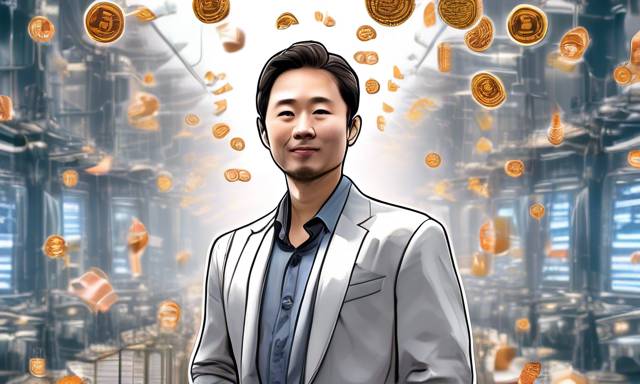Understanding the Current Landscape of Credit Card Debt 📊
As the economic climate remains uncertain and living expenses continue to rise, American consumers find themselves grappling with an astounding $628 billion in unpaid credit card debt every month. This alarming figure sheds light on the financial pressures households are currently facing due to soaring costs and dwindling savings.
In contrast, the S&P 500 achieved its strongest annual performance since 1954, highlighting a remarkable recovery in the stock market. These impressive gains have somewhat alleviated fears surrounding a potential recession. However, the impact of U.S. inflation continues to reverberate, particularly in relation to the record levels of credit card debt.
As these developments unfold, an increasing number of Americans are looking for changes in the political landscape, which may subsequently affect financial markets. This is evidenced by the growing popularity of figures like Donald Trump, whose influence may have anticipated repercussions on economic conditions.
Impact of Inflation on Credit Card Balances 💳
Over the last three years, Americans have seen an escalation in revolving credit card balances, totaling a staggering $204 billion—an increase of 52%. At the same time, the average interest rate on credit card debt has surged to an all-time high of 25%, up significantly from 15%.
As a result, consumers are not only grappling with higher debt but are also faced with escalating interest payments. Many are finding it increasingly difficult to reduce their balances, as reported in various analyses highlighting these concerning trends.
Concurrently, consumer prices in the U.S. have surged by approximately 20% on average. This inflationary pressure has led many Americans to depend more heavily on credit cards for their day-to-day expenses. With excess savings of $2.3 trillion now largely depleted, reliance on debt has become crucial for many households.
“U.S. consumers are confronting record prices by turning to debt.”
– Expert Insights
While some individuals are overwhelmed by mounting debts and rising interest rates that diminish their purchasing power, innovation continues to thrive in the decentralized finance (DeFi) sector. Crypto investors are capitalizing on yield farming in favorable platforms, looking for alternative means to grow their investments.
Worries About Debt Repayment 📉
On the flip side, apprehensions regarding the repayment of this escalating debt are growing. A recent survey conducted by the Federal Reserve Bank of New York revealed that the average anticipated likelihood of missing a minimum debt payment over the next three months has risen to 14.2% as of September—representing the highest delinquency expectation since January 2017, outside the pandemic period.
As noted by Ted Rossman, a senior industry analyst at Bankrate, “Inflation is consuming much of the gains people are making. Therefore, even with employment and rising wages, many individuals are not feeling secure about their financial situations.”
The debt burden is not uniformly distributed; for those earning less than $50,000 annually, the chance of missing a payment has escalated to 20%. This trend underlines the deepening income inequality faced by lower-income households.
Future Outlook for Credit Card Debt in the U.S. 🎄
As the holiday season draws near, experts caution that credit card debt may see an upward trajectory. A report has shown that approximately 28% of shoppers who utilized credit cards last year have not yet settled their holiday expenses.
This year, shoppers are projected to spend approximately $1,778 on average, marking an 8% increase compared to the preceding year. As a result, credit card balances may increase significantly.
“With expenses for gifts and seasonal travel, the holidays become an expensive period,” remarked Sara Rathner, a credit card expert at NerdWallet. “Consumers face the risk of accumulating credit card debt, which can linger long after the holiday season ends.”
– Sara Rathner to CNBC
Hence, financial advisors advocate for establishing strict budgets and contemplating alternatives to conventional gift-giving practices. Initiating holiday shopping early to leverage discounts or opting for homemade gifts can prove beneficial in managing expenses.
The unprecedented level of unpaid credit card debt illustrates the financial hurdles that numerous Americans encounter today. With inflation eroding purchasing power and interest rates remaining elevated, the dependency on credit cards has become a necessity for many.
As highlighted by Ted Rossman, “Inflation remains a critical issue; despite signs of moderation, it remains a dominant theme in the economy.” Consumers are encouraged to thoroughly evaluate their finances and seek guidance from professionals. By implementing careful spending strategies and exploring options for debt management, individuals can maneuver through these challenging economic times.
Hot Take 🔥
Insights into the current credit card debt situation reveal the burdens many consumers face as they navigate inflation and rising interest rates. This ongoing economic climate calls for careful planning and proactive measures to maintain financial health. Adopting wise spending habits and understanding the broader economic landscape can equip you with the tools needed to handle these financial challenges effectively.





 By
By
 By
By
 By
By

 By
By
 By
By